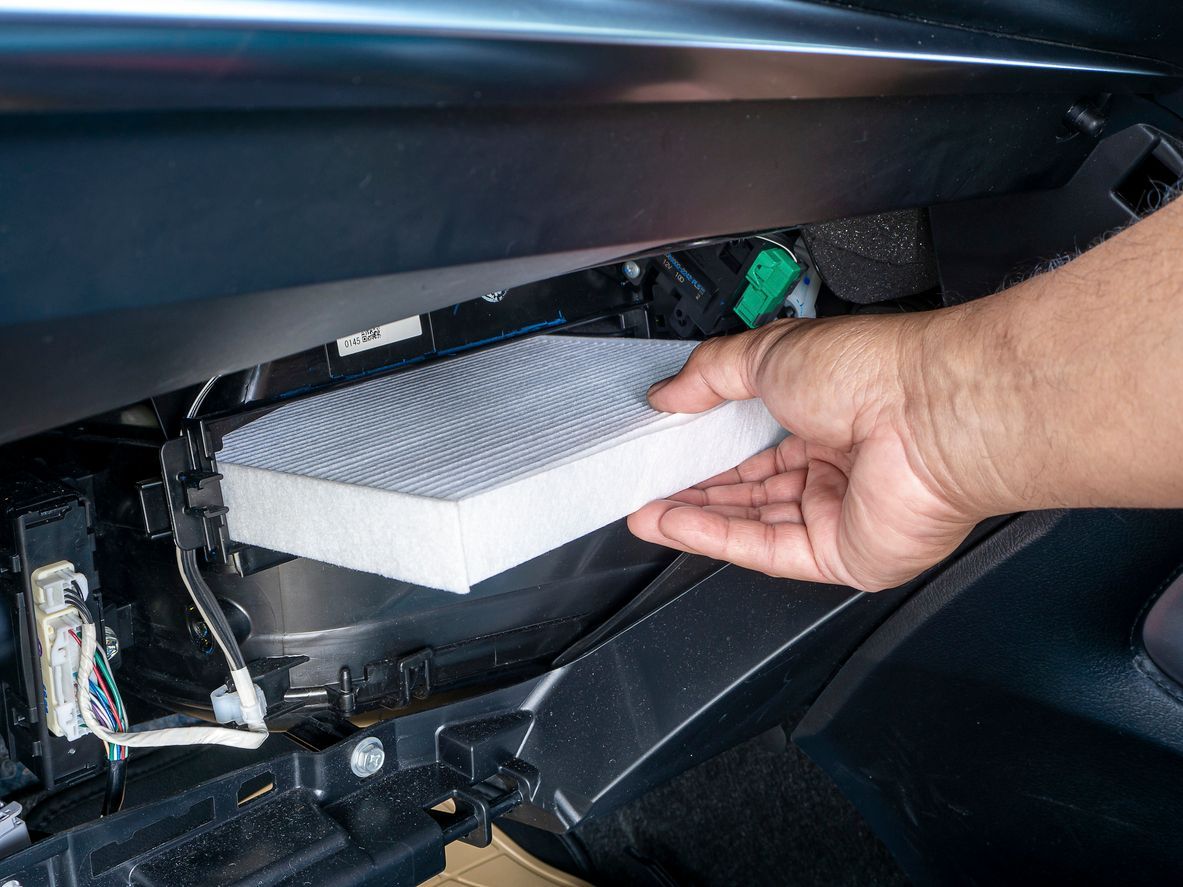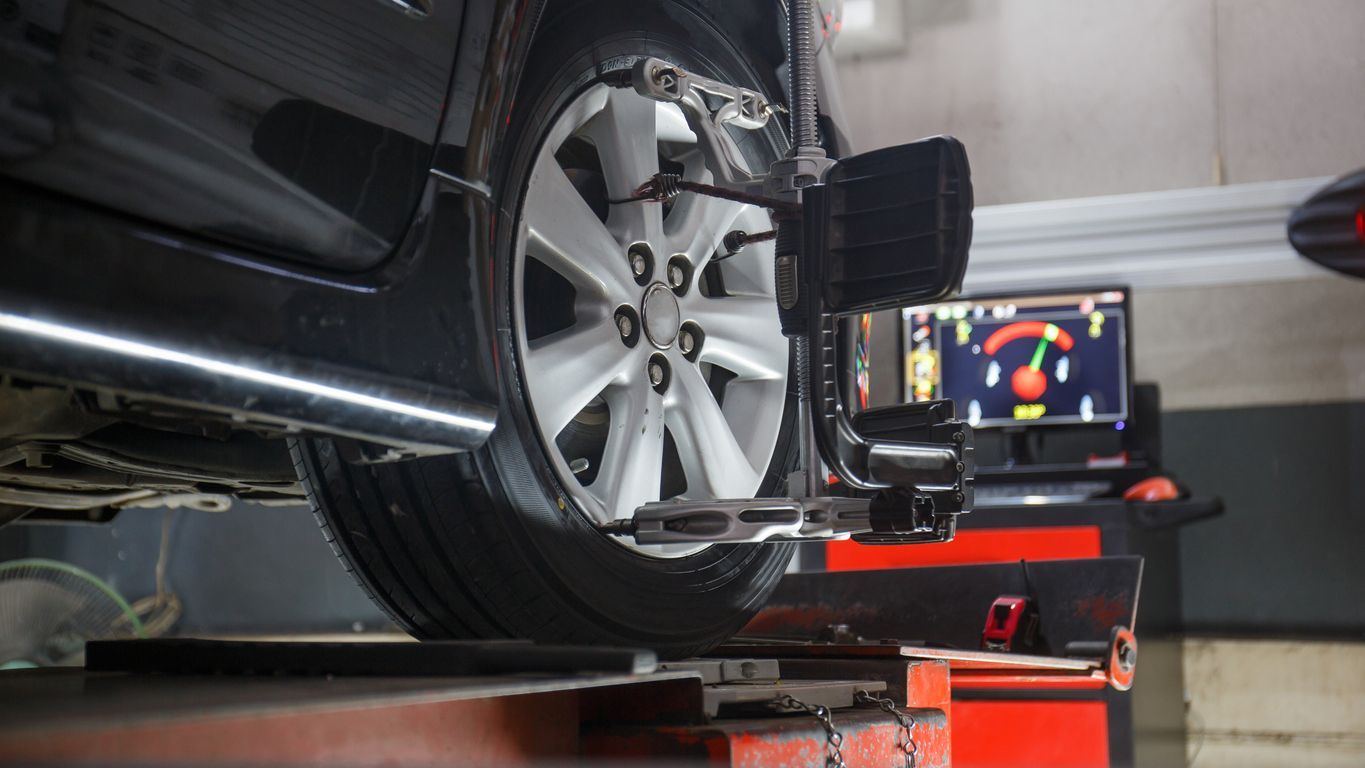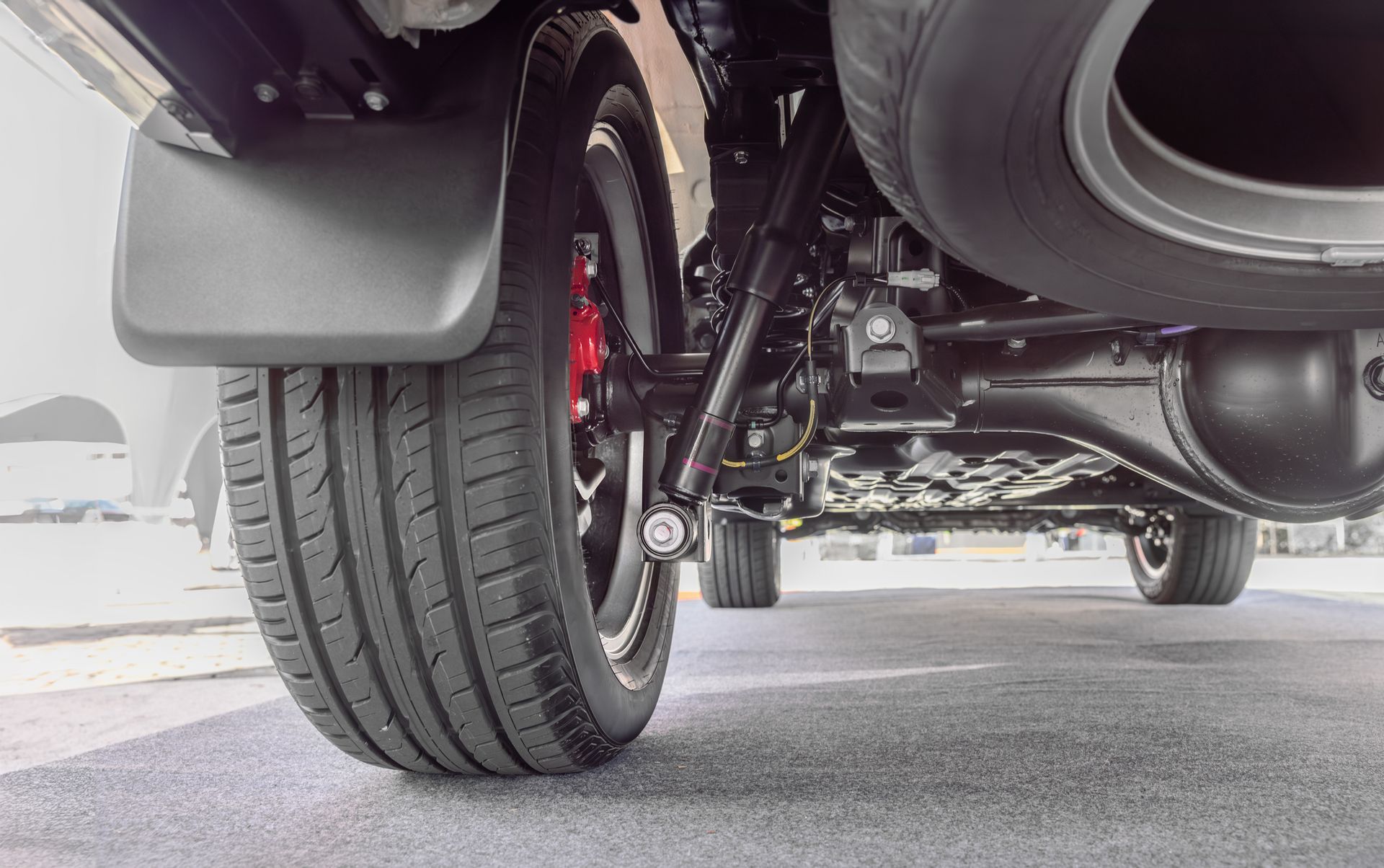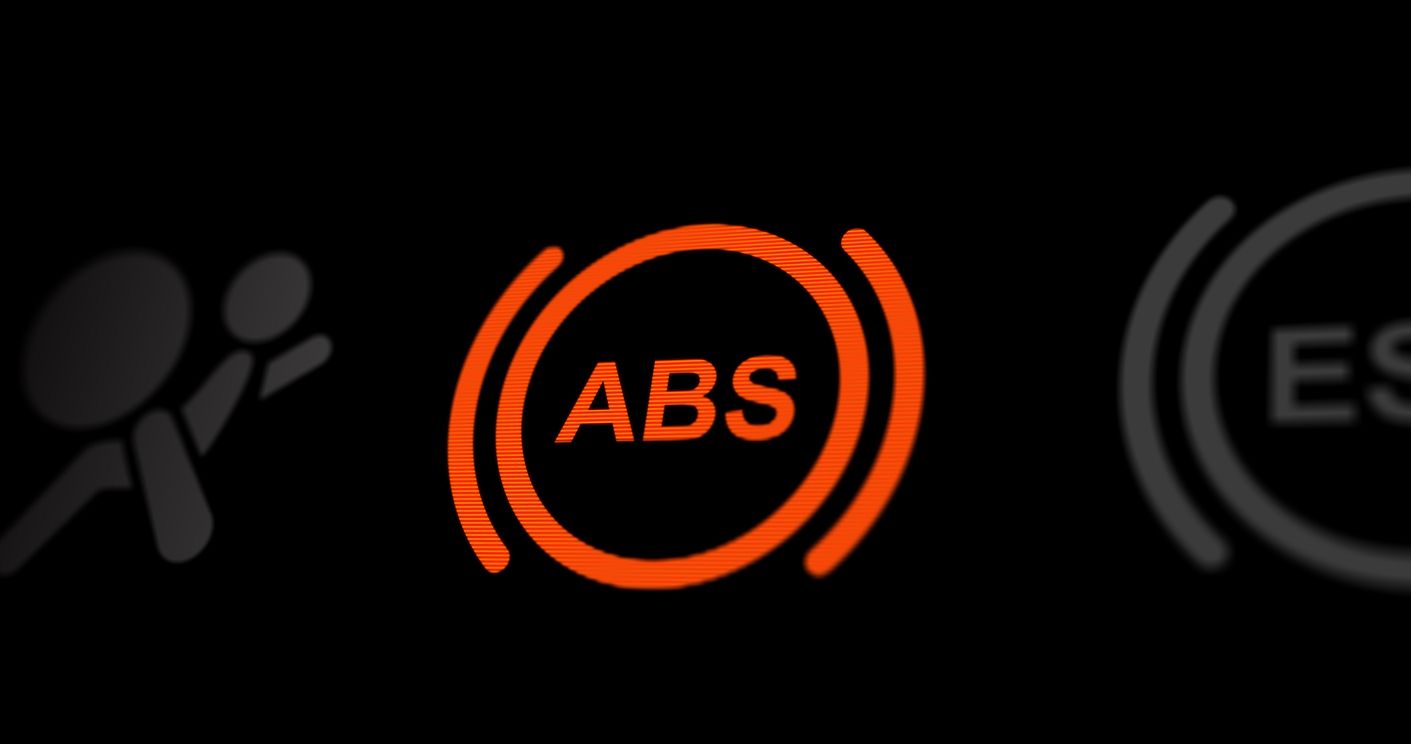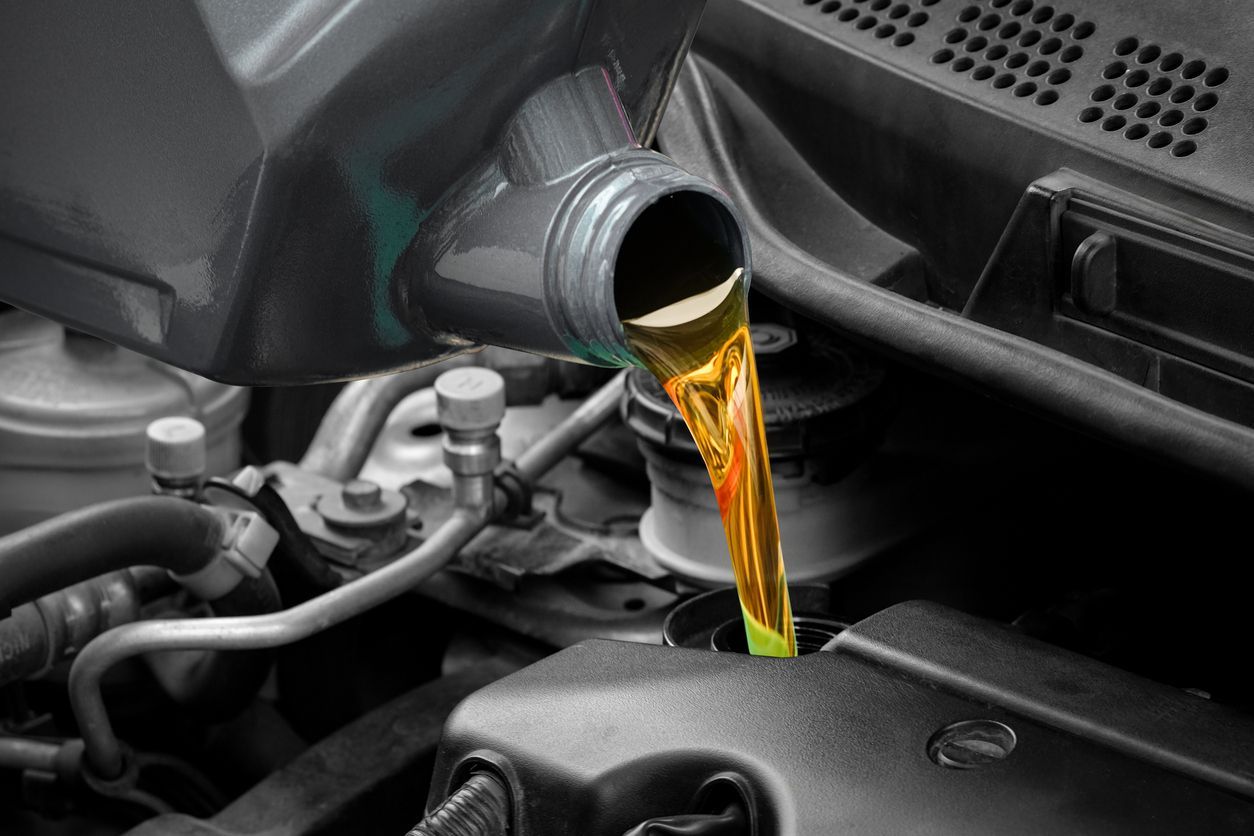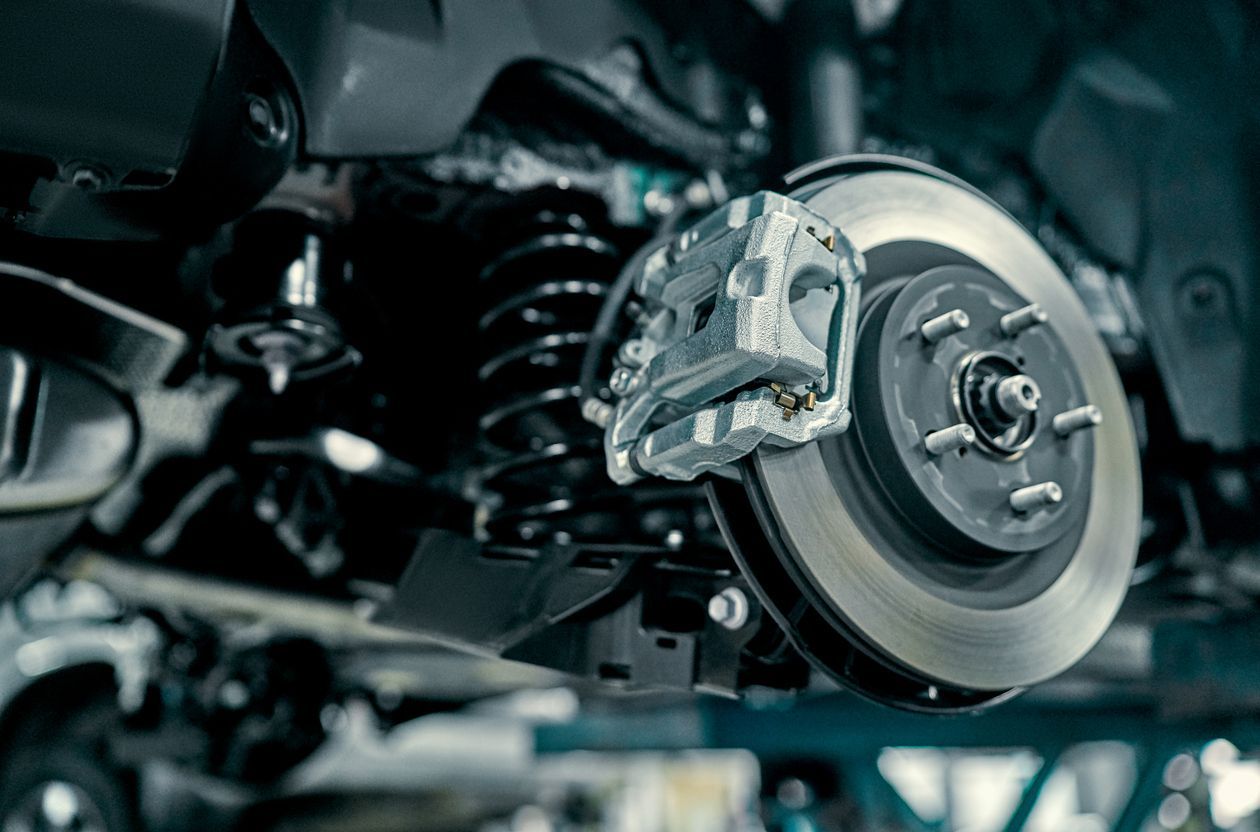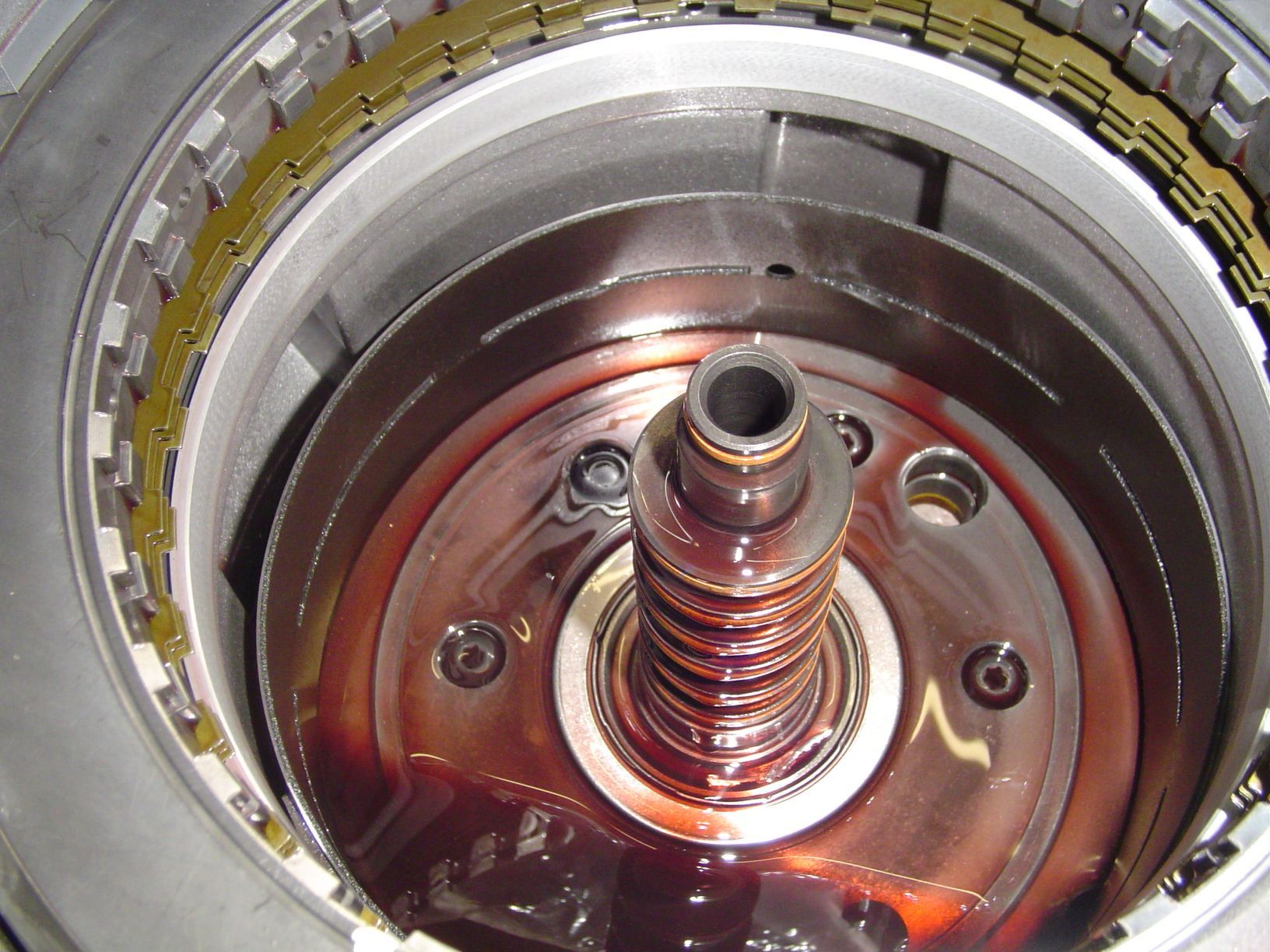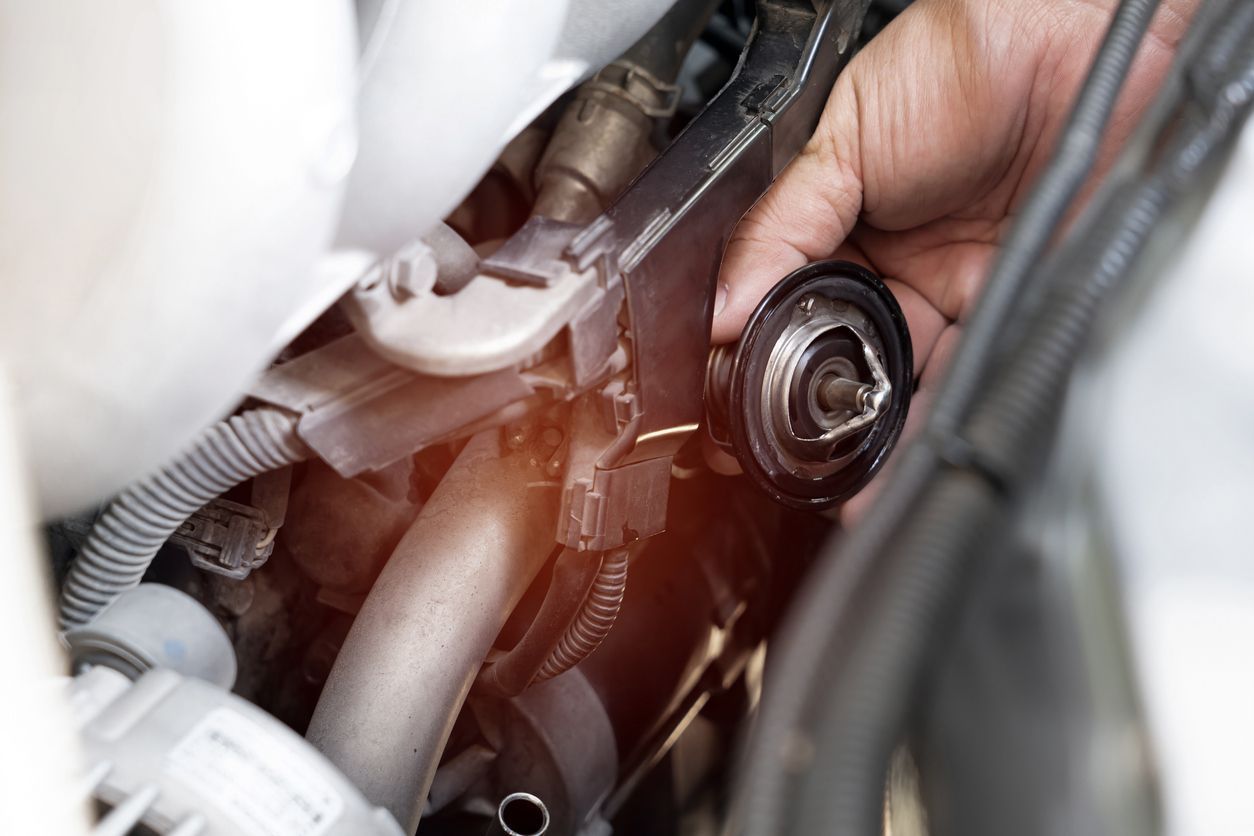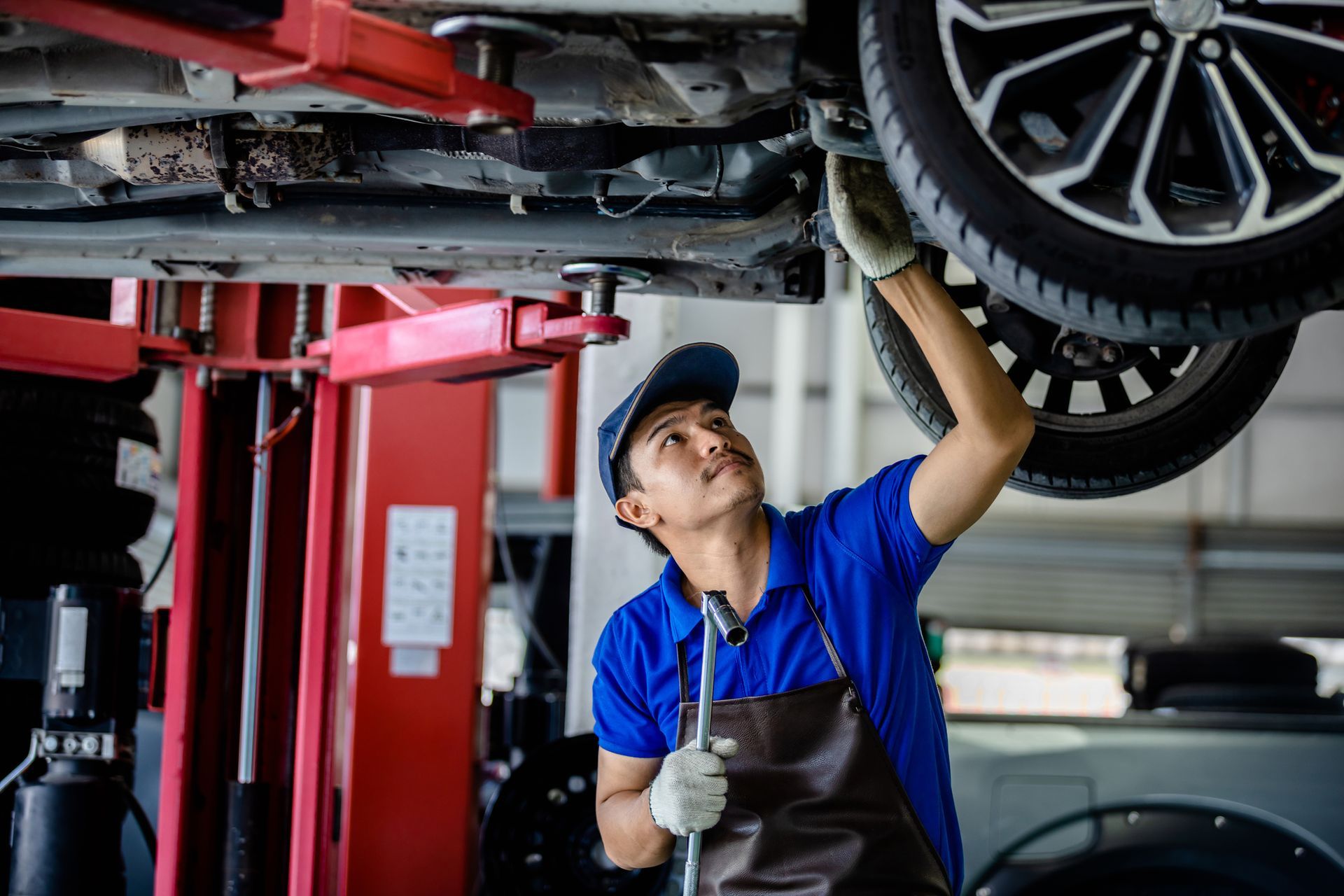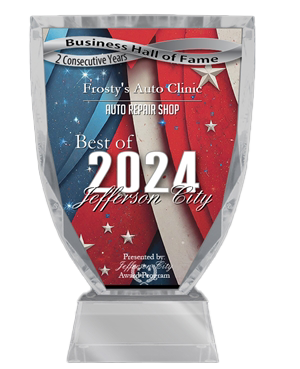Tire Tread Depth
Serving: Jefferson City, MO
When talking about stopping power, we tend to focus on our brakes. But our tires are where the rubber meets the road. So having good brakes isn't enough: we have to have tires with enough traction to translate braking power into stopping power.
Let's focus on stopping in wet conditions. In order for a tire to have good contact with the road, it has to move the water out of the way. If it can't move the water, the tire will actually ride on top of a thin film of water.
To move water out of the way, the tire has channels for water to flow through. Look at a tire and you'll see channels that run around and across the tire. They're designed to direct water away from the tire so it can contact the road better.
The deeper the channel, the more water it can move. A brand new tire has very deep channels and can easily move a lot of water. As the tire wears down, the channels become shallower and can move less water. When it wears down enough, it can seriously affect your ability to stop on wet roads.
Consumer Reports and other advocate groups think that a good standard of replacing tires when the tread is worn down to 4/32 of an inch. That's 3.2 millimeters.
When tires are worn to 2/32 of an inch, or 1.6 millimeters, the tread wear bar is visible. So the recommended standard has twice the tread depth as a completely worn out tire - and that little bit of additional tread makes a big difference. Stopping distances are cut dramatically on wet roads. A safe stop from freeway speeds with 4/32 of an inch of tread could result in a crash with worn out tires.
There's an easy way to tell when a tire's worn to 4/32 of an inch. Just insert an American quarter into the tread. Put it in upside down. If the tread doesn't cover George Washington's hairline; it's time to replace your tires. With a Canadian quarter, the tread should cover the numbers in the year stamp.
